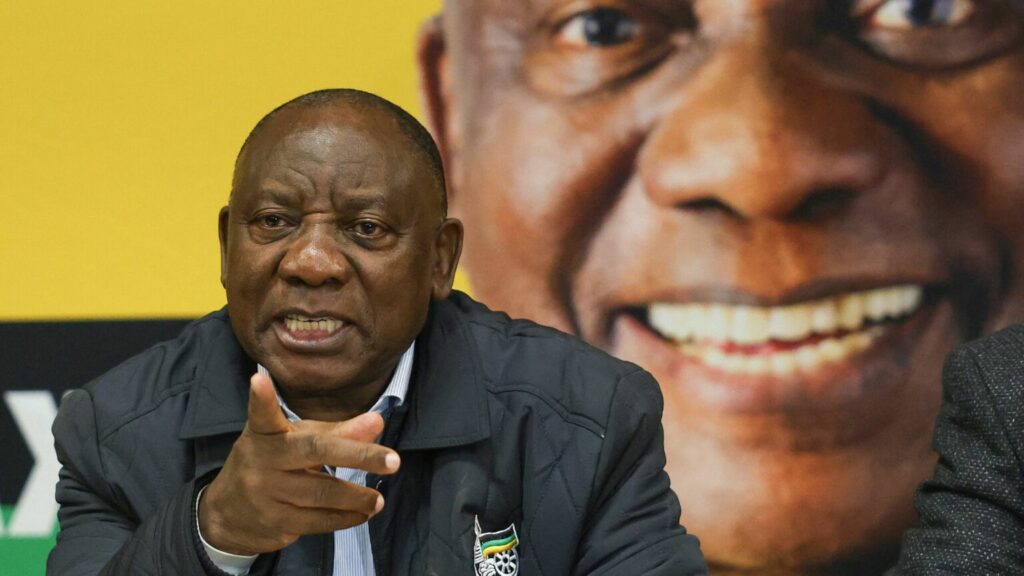In all moments of human strife, it is natural to hold on to a sliver of hope. South Africa’s General Election in May is a case in point.
According to much of the media, the election outcome showed that South African democracy is alive and well. The process ran relatively smoothly, with little pre-election violence and only the occasional bureaucratic foul-up. The African National Congress (ANC) lost its parliamentary majority for the first time in 30 years of rule, but all parties accepted the results. A new Government of National Unity (GNU) was able to be formed at the end of last month, led by the ANC in partnership with the centrist Democratic Alliance (DA) and other much smaller parties. This has been heralded as ‘a remarkable new era’ for South Africa.
Much of this media coverage has attempted to channel the anti-populist narrative that has been prevalent around the European, UK and US elections. The Economist presented the decision of re-appointed president Cyril Ramaphosa to side with the DA, and exclude ‘populist’ parties like Jacob Zuma’s uMkhonto weSizwe (MK) and the Economic Freedom Fighters (EFF), as a victory for democracy and sensible governance. In its view, the new coalition clearly ‘adheres to the values of the 1994 settlement’, when Apartheid was abolished, and has a strong chance of ‘overseeing vital reforms’. Supposedly, the GNU not only ‘reflects well on the Rainbow Nation’s fledgling democracy’, but also provides ‘lessons in democracy for the rest of the world’.
This narrative is an absurd obfuscation of reality. It is a blatant attempt to absolve the ANC of responsibility for the catastrophic state of post-Apartheid South Africa.
Portraying a power-sharing government led by the ANC as an opportunity for hope and change is both mad and dangerous. The ANC has become a kleptocracy. It has long ceased to be allied to the black masses, in whose name it governs and enriches itself. That Western media celebrate continued ANC rule as a victory for democracy shows just how hollowed out our idea of democracy has become.
In his inaugural speech last month, Ramaphosa solemnly committed to be ‘a president for all South Africans’. He acknowledged that voters have been ‘unequivocal in expressing their disappointment and disapproval of [the ANC’s] performance in some of the areas in which we have failed them’. Quoting the 1952 Freedom Charter that defined the ANC’s struggle against Apartheid, he reaffirmed that South Africa ‘belongs to all who live in it’.
What Ramaphosa failed to mention was the Freedom Charter’s other core clause. This states that ‘the mineral wealth beneath the soil, the banks and monopoly industry shall be transferred to the ownership of the people as a whole’. Yet the ANC has long treated South Africa’s wealth as its personal property. And since coming to power in 2018, Ramaphosa has protected his party by refusing to end the graft, corruption and nepotism he once promised to eradicate.
The core problem, however, is far more profound than Ramaphosa and the ANC’s poor track record. Indeed, this election shows that South Africa’s democracy is in a parlous state. Behind the technical mechanisms of an election looms a pessimistic, atomised and fractured nation. The rosy picture of a healthy democracy, painted by the likes of The Economist, obscures growing anti-democratic dynamics beneath the surface.
The numbers alone paint a bleak picture. Nearly 39.7million people in South Africa are eligible to vote, but only 27.7million are registered. Of those potential voters, only 16.2million went to the polls in May. Altogether, at just under 59 per cent, this year’s election had the lowest ever turnout in South Africa’s three decades of democracy. This is not surprising. The gap between the number of eligible voters and active voters has been growing at every election since the end of Apartheid. In 1994, close to 90 per cent of voting-age South Africans turned out.
The election has also brought deep racial, ethnic and sectarian divisions to the fore. Black South Africans voted overwhelmingly for black parties. Whites mostly voted for the DA. ‘Coloureds’ – mixed-race people – largely deserted the traditional parties. This is a huge problem for the ANC, as black voters overwhelmingly rejected its main coalition partner, the DA. Overall, the GNU mandate is endorsed indirectly by only 40 per cent of South Africans. This is hardly a triumph for democracy.
The party that came third, Zuma’s MK, is equally concerning. It owes its success entirely to a resurgence of Zulu nationalism. MK’s victories were rooted in KwaZulu-Natal, the Zulu heartland, and the Zulu-speaking regions in the eastern parts of the country. Most tellingly, MK’s popularity managed to deprive the ANC of majority support in the industrial and financial centre of Gauteng. The emergence of this type of race- and ethnic-based politics is disturbing to say the least.
After 30 years of ANC rule, South African democracy has become a hollow shell of itself. It is now a dead regime increasingly devoid of any legitimacy and authority. To celebrate its new Government of National Unity shows at best a misunderstanding of the South African climate. At worst, it displays contempt for the South African people.
Dr Norman Lewis is a writer and visiting research fellow at MCC Brussels. His Substack is What a Piece of Work is Man!. Sign the Brussels Free Speech Declaration here.
To enquire about republishing spiked’s content, a right to reply or to request a correction, please contact the managing editor, Viv Regan.
Source link : https://www.spiked-online.com/2024/07/10/south-africas-zombie-democracy/
Author :
Publish date : 2024-07-09 23:00:38
Copyright for syndicated content belongs to the linked Source.
